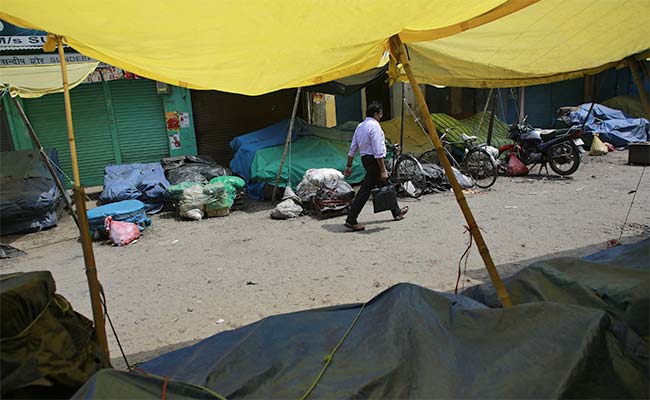
After talks with the Centre, the chief ministers of Assam and Nagaland have agreed to initiate measures to de-escalate the tension at the border of the two states, where 15 adivasis or tribals from Assam have died in ethnic clashes with Nagas in the last one week.
Here's the latest developments in this story:
The two states have agreed that protesters will not be allowed to impose what is being called an "economic blockade". Protesters in Assam have been blocking national highways leading to Nagaland in an attempt to cut off supplies.
They have agreed that the immediate release of some Assamese people allegedly being held on the Nagaland side will be arranged. And also that joint border peace committees will be set up with representatives from both sides for quick resolution of disputes.
Both states will also set up inquires into the violence and reports will be submitted within 15 days, it was agreed at a meeting the chief ministers had with Union Minister of State for Home Kiren Rijiju, who was in Guwahati today. Mr Rijiju said later, "I appeal for no economic blockade, we have to co-exist and live together. We should ensure that flow of people is undisturbed."
The Centre has asked the two states to be "proactive" in controlling the violence that has hit the border villages and has sought immediate resettlement of about 10,000 people displaced by the clashes. It has said it will relocate more paramilitary forces to the Golaghat area, the epicentre of the violence.
A central government note alleges that the current spate of violence began with a land dispute between two men, a Naga and an Assamese, which was fanned by social activists and politicians, with insurgent outfits in both states jumping in.
The note alleges that local Congress leaders opposed to Chief Minister Tarun Gogoi are "fanning the protests" which has added to tension. Mr Gogoi has faced massive political rebellion within his party.
The situation at the Assam-Nagaland border is extremely tense. The Asom Gana Parishad has a called a day-long bandh today in protest against police action on protesters on Tuesday and Wednesday. The police opened fire both days; while it stressed on Tuesday that no one was injured in firing, three people died yesterday.
Those protesting against the killing of the nine Assamese, allegedly by Naga insurgents, have clashed with the police. On Wednesday, a 4000-strong mob with bows and arrows and spears attacked the police, which then opened fire.
On Thursday, protesters defied curfew orders to come out on the streets, and block national highways cutting off the entire Upper Assam, Nagaland and Manipur from the rest of the country. The Numaligarh Oil Refinery in Golaghat has been closed down and hundreds of oil tankers that carry petroleum to the rest of the country are lined up along the NH 39 and 37.
Parts of the border between Assam and Nagaland have been disputed for about 50 years. The dispute has led to several bouts of violence in the past.

